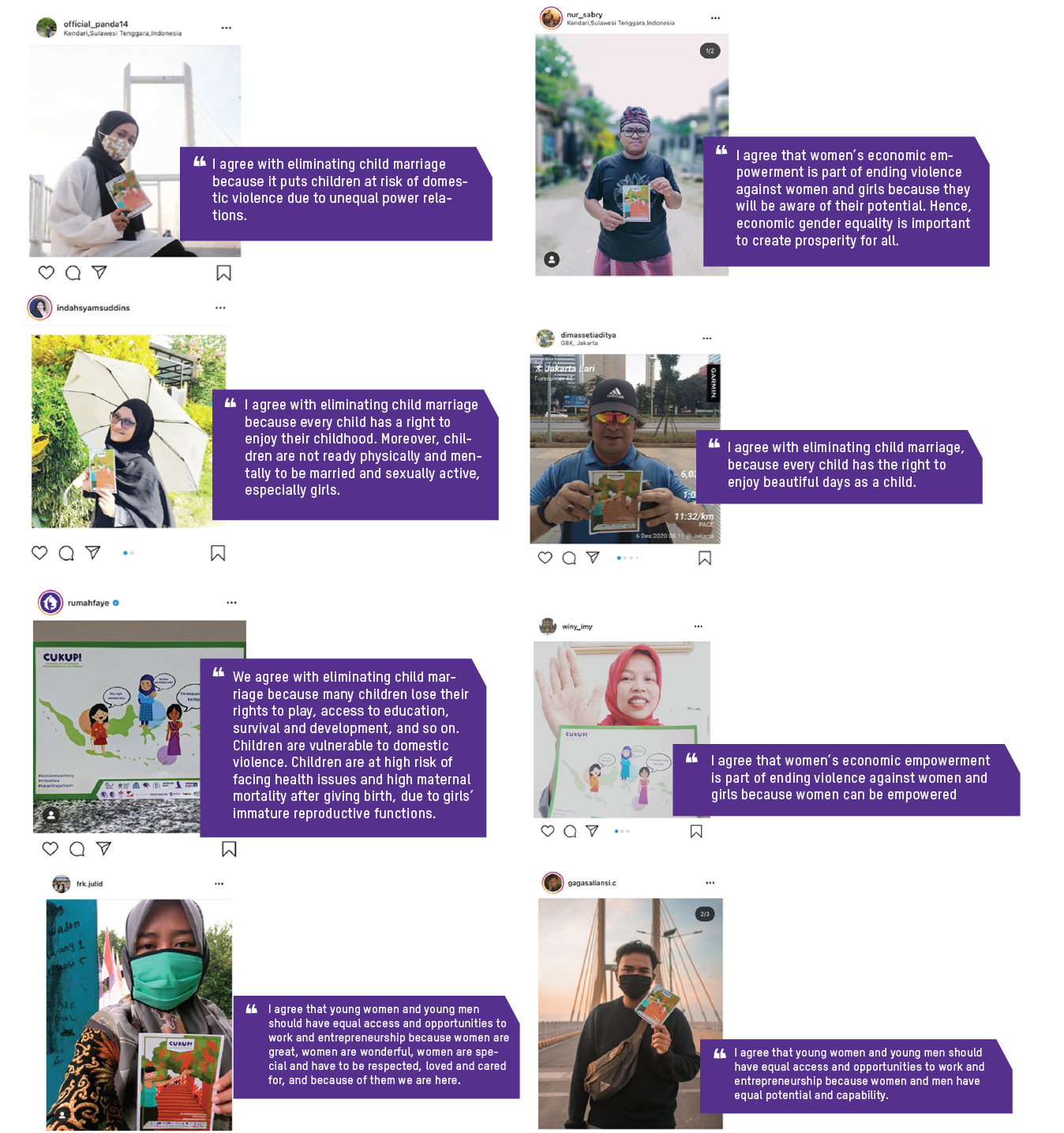ENOUGH! 16 Days of Activism in Indonesia
On 22 November 2020, the 16 Days of Activism in Indonesia kicked off with an online panel discussion on the impact of the Covid-19 pandemic on women and girls – including a rise in child marriage and cases of sexual violence. Keynote speakers included representatives from local authorities as well as EYW partners.
“We must strengthen the capacity of young people, young women, community leaders, government and religious leaders to be agents of change.” These are the words of Suharti, Director of SANTAI (a Creating Spaces partner), which campaigns against child marriage and advocates for government policy to prevent it. Suharti highlighted the concerning rise in underage pregnancies and child marriage during the pandemic, and the need to enable young women and girls to speak out about the impact of child marriage on their lives.
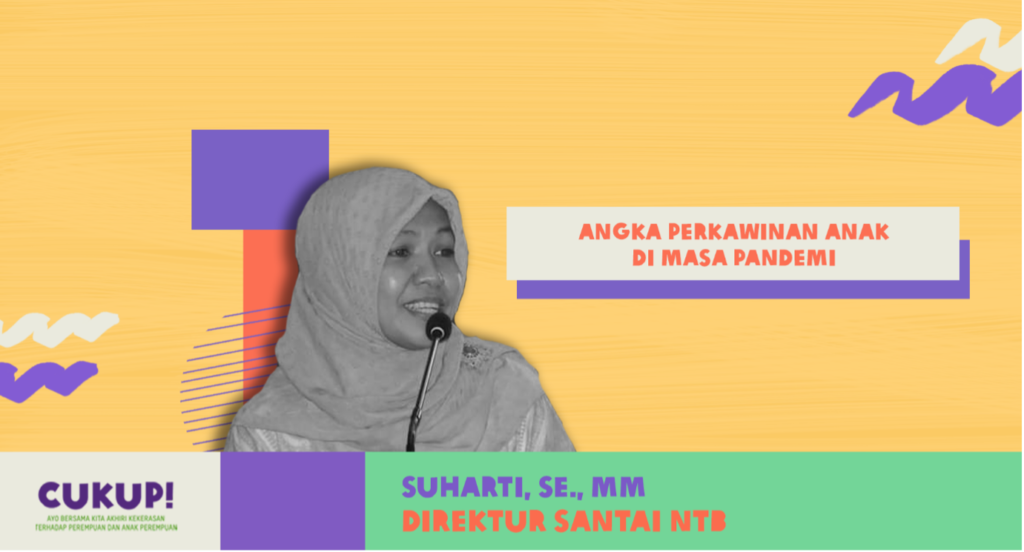
Muhammad Junaini from ADARA Consortium pointed to the sharp rise in sexual violence against children, and said that cases are estimated to have increased by up to 40% since the start of the pandemic. He outlined a number of strategies to tackle this, including greater involvement of religious, indigenous and youth group leaders.
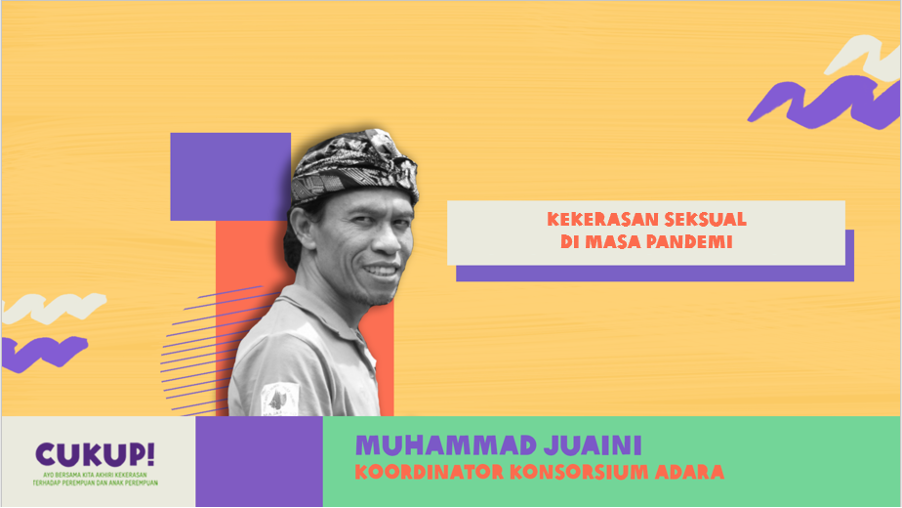
Together we’re stronger
Lalu Sarappudin, Head of Sekotong Tengah Village, gave an inspiring account of how the village has committed to ending childing marriage by establishing village-level regulations on child protection, creating a child forum and working together with the healthcare center, schools and the wider community to raise awareness. However, despite the initial success of the campaign, he warned that cases of child marriage have risen again during the pandemic.
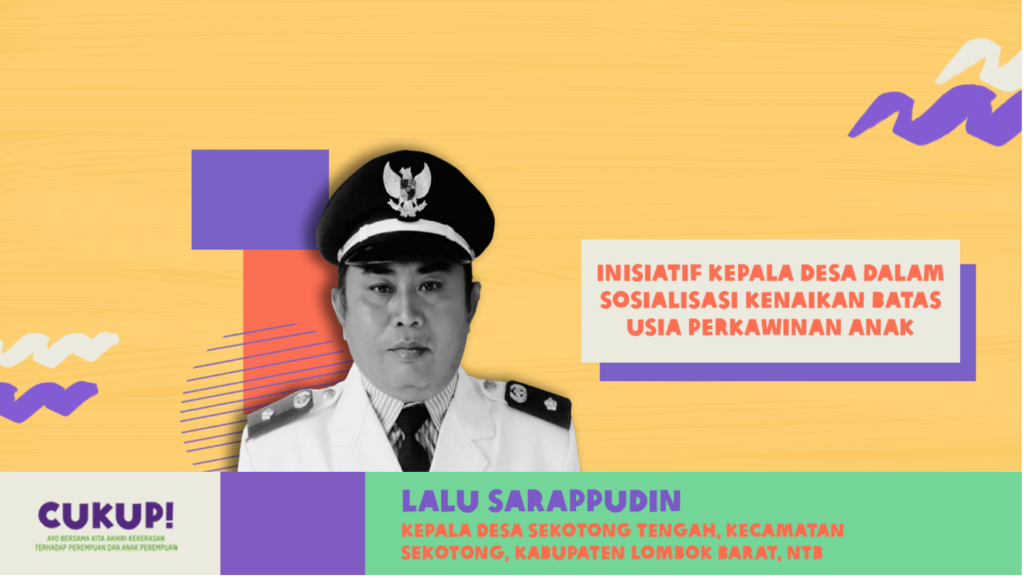
The panel discussion also looked at the impact of Covid-19 on young female entrepreneurs. While the pandemic has had devastating consequences for many business sectors, women are disproportionately affected and less likely to be able to access government support. Edi Ariadi from EWY partner ASPPUK called on stakeholders and young women to work together, saying: “The discrimination towards young women can be overcome by networking with entrepreneurs and by collaboration among young women entrepreneurs.”
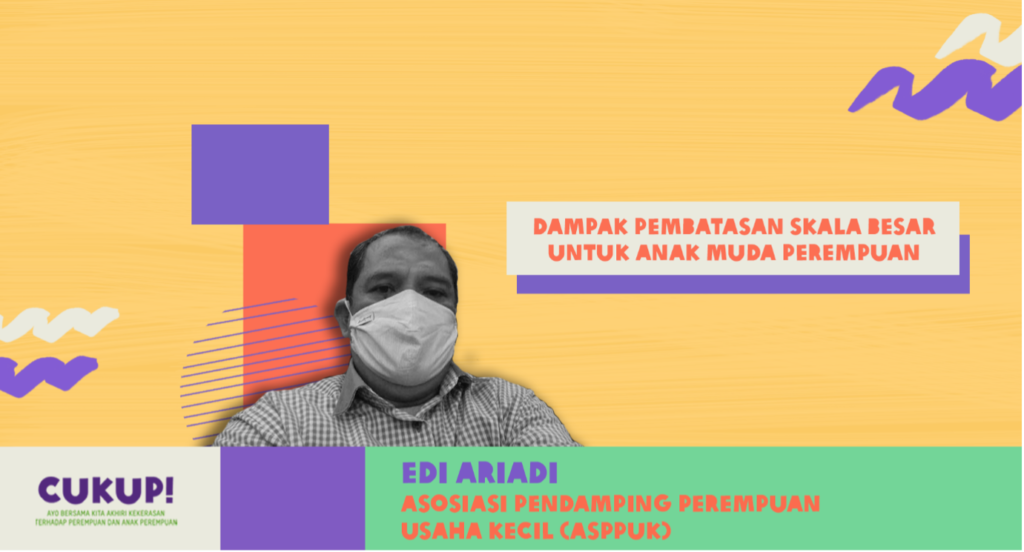
“We must strengthen the capacity of young people, young women, community leaders, government and religious leaders to be agents of change.” These are the words of Suharti, Director of SANTAI (a Creating Spaces partner), which campaigns against child marriage and advocates for government policy to prevent it. Suharti highlighted the concerning rise in underage pregnancies and child marriage during the pandemic, and the need to enable young women and girls to speak out about the impact of child marriage on their lives.
Muhammad Junaini from ADARA Consortium pointed to the sharp rise in sexual violence against children, and said that cases are estimated to have increased by up to 40% since the start of the pandemic. He outlined a number of strategies to tackle this, including greater involvement of religious, indigenous and youth group leaders.
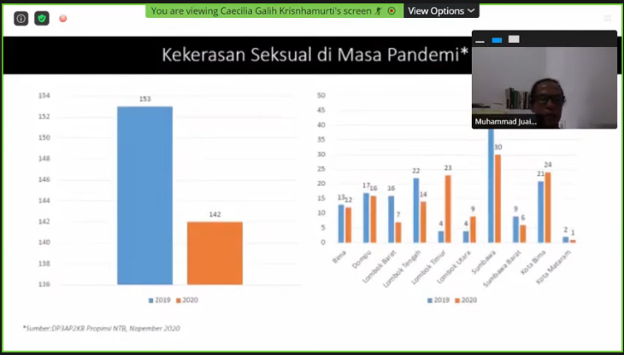
Together we’re stronger
Lalu Sarappudin, Head of Sekotong Tengah Village, gave an inspiring account of how the village has committed to ending childing marriage by establishing village-level regulations on child protection, creating a child forum and working together with the healthcare center, schools and the wider community to raise awareness. However, despite the initial success of the campaign, he warned that cases of child marriage have risen again during the pandemic.
The panel discussion also looked at the impact of Covid-19 on young female entrepreneurs. While the pandemic has had devastating consequences for many business sectors, women are disproportionately affected and less likely to be able to access government support. Edi Ariadi from EWY partner ASPPUK called on stakeholders and young women to work together, saying: “The discrimination towards young women can be overcome by networking with entrepreneurs and by collaboration among young women entrepreneurs.”
“Post the card!”
During the 16 Days, EYW youth designed four postcards on eliminating gender-based and posted them to representatives of NGOs, the media, government and social media influencers, encouraging them to support the campaign and spread the word. Recipients posted photos of themselves holding up their postcard, along with their personal messages of support, to encourage others to get involved and join the call to end gender-based violence.
